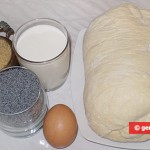Dietary Sources for Arginine
Arginine is a nonessential amino acid. Unlike essential amino acids, it can be manufactured by the body except for prematurely born infants whose bodies cannot synthesize it. However, there are situations in which the body requires larger arginine amounts than usual. Such situations include surgery and other trauma, such as sepsis or burns.

Arginine Supplements
Why Get Arginine From The Diet?
Arginine as a nutrient can be obtained from various foods. In general, foods are the best source of nutrients, the healthiest, and the most recommended. In most cases, the body is perfectly able to produce enough of this amino acid so that it is not necessary to obtain it from food. But, when the body is not properly fed or when it is affected by certain conditions, it is advisable to increase the intake of arginine.
Dietary Sources for Arginine
Arginine is found in different foods that can be eaten and processed by the body from both animal and plant sources. Plant sources that have a high content of arginine are oatmeal, wheat germ and flour, buckwheat, chickpeas, soybeans, and granola. Also, nuts such as Brazil nuts, cashews, almonds and walnuts, as well as seeds such as sesame, pumpkin or sunflower seeds are also highly valued for their arginine content.
Animal sources are considered beef, pork, poultry, and wild game. In this way, you can consume bacon and ham, turkey and chicken light meat, pheasant or quail meats. You can also consume dairy products such as ricotta, whey protein drinks, milk, cottage cheese, and yogurt, as well as seafood including salmon, shrimp, tuna, snails, lobster, and halibut, crabs, crayfish, and other crustaceans. In addition, gelatine as dry, unsweetened powder is a good source of arginine.
You can also find arginine supplements from many retailers. Maximuscle arginine provides serious trainers with more intensive levels of arginine, which is great for hardcore work-outs.





